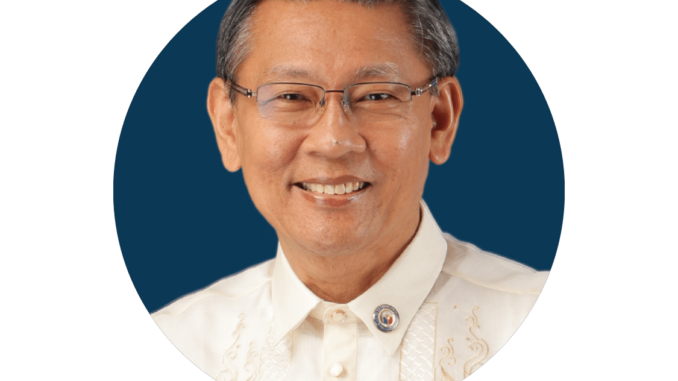
The House Committee on Health is now working on measures that will address the diminishing share of local government units (LGUs) in the country’s total health expenditure, including mandating an automatic 5% allocation for special health fund.
Rep. Ciriaco B. Gato Jr., Health Committee Chair, recognized that various problems and issues concerning health financing continue to plague and threaten the healthcare network, despite the enactment of the Universal Healthcare Act, “and one of these issues is the lack of mandatory allocation of funds for health services.”
Gato reacted to the study titled “Philippine Health Sector Performance: An Analysis Using the National Health Accounts of 1990-2022” commissioned by the Unilab Center for Health Policy (UCHP).
In the UCHP study, Doctors Michael Mo, Orville Solon, and Alejandro Herrin flagged the diminishing health spending of LGUs as a major challenge to attaining universal health care.
The study was presented during the UCHP executive symposium held last August 2, 2024 at the Sheraton Manila Bay attended by representatives from the national government, local governments, Congress, health care providers, patients’ groups, and other key stakeholders in the health sector.
This is part of UCHPs commitment to provide the forum for an exchange of ideas for better implementation of the country’s Universal Health Care policy.
Gato said the House Committee on Health is pushing for measures that aim
to boost the special health fund under the UHC Act through mandatory contributions by the LGUs to ensure adequate resources for health, including human resources for health.
“At present, the Department of Health and PhilHealth admitted during recent committee meetings that contributions to the special health fund by municipal and city LGUs are voluntary. Corollary to this, the committee is also deliberating on House bills that seek to amend the pertinent provisions of Republic Act 7160, otherwise known as the Local Government Code, on health financing. I wish to inform you that the committee is inclined to come up with legislative measures mandating LGUs to allocate 5% of their income for health,” Gato told the UCHP symposium attendees.
He said the Committee on Healthwill take into consideration the UCHP findings on the government’s health expenditures and “incorporate them into our policymaking to ensure that the World Health Organization’s goal of having 5 percent total health expenditure as a share of GDP will be met.
“We also value your recommendations to review strategies to decrease out-of-pocket expenses and improve spending efficiencies,” he said.
Gato said another way to achieve universal health care for Filipinos is the revision of Philhealth’s benefits payment system, as espoused in the study conducted by UCHP experts led Dr. Valerie Gilbert Ulep titled “Provider Payment Governance in the Philippines: A Proposal”.
The UCHP researchers reviewed the benefits payment system and how it can be improved for better utilization of Philhealth funds, including a shift to diagnostic related groups (DRGs).
They studied other countries like Thailand, Australia and Germany that are successful in implementing DRGs. Basically, they learned that aside from shifting to DRGs from case rates, the Philippines should also have an independent arm’s length agency that will oversee the release of payments to Philhealth partner-institutions.
Gato said the study gives them a clearer picture of the provider payment system in the country and how it can be developed to be more responsive to the needs of Filipinos.
“Rest assured, that the committee will take into account this suggestion to establish a new system or a separate entity that sets case rates similar to models in other countries. I believe that this proposal can be included in the ongoing deliberations on the roles and responsibilities of PhilHealth and the Health Technology Assessment Council,” Gato said.
Gato also expressed his appreciation to the Unilab Foundation and UCHP for conducting the two studies, as their findings and recommendations are “highly valuable in our thrust to have evidence-based and data-driven policymaking, with the end goal of realizing universal healthcare.”


Be the first to comment